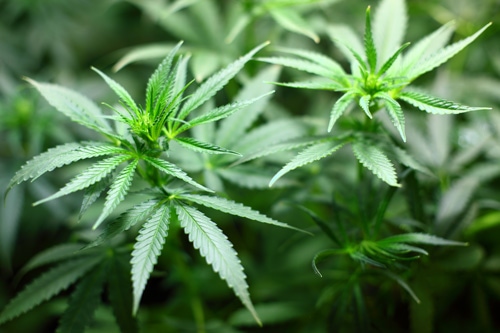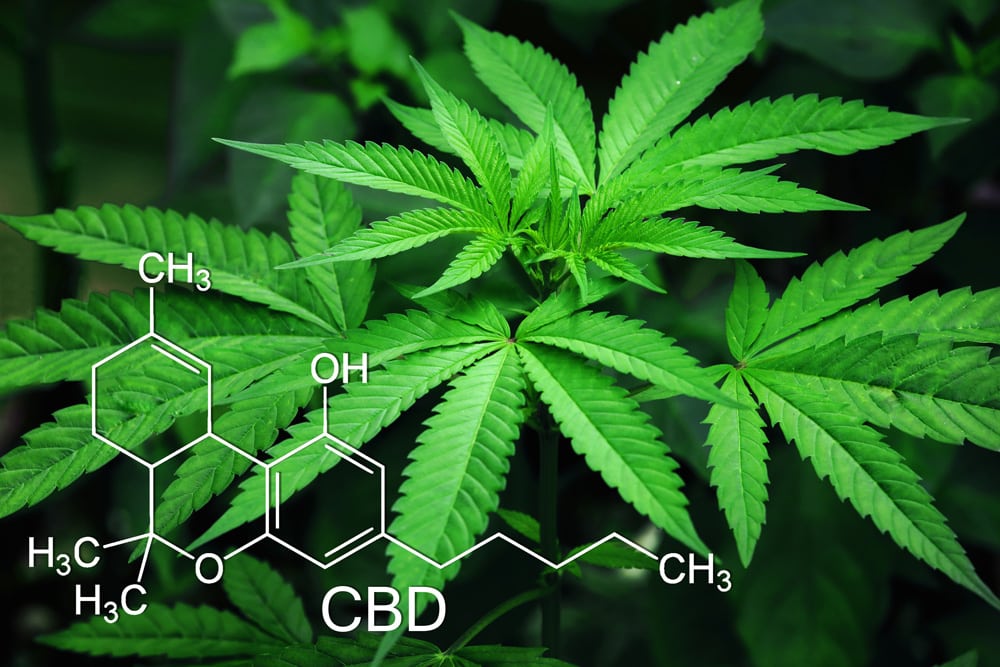According to the National Institute on Drug Abuse, cannabis is the most commonly used illegal psychoactive substance in the United States. A recent survey conducted by SAMHSA found that 11.8 million young adults reported using cannabis in 2018. Still illegal in the eyes of the U.S. federal government, thirty-three states and the District of Columbia have passed some form of cannabis legalization laws. Cannabis use has been legal in California since 2016. As such, cannabis use rates have continuously risen across the U.S. since 2002. Not surprisingly, the greatest increase in use has been seen in adult populations, fueled primarily by legislation changes and lower perceived risk of legalized cannabis products. Here is what patients need to know about cannabis:
What Does Cannabis Do?
Raw cannabis products may contain as many as 400 unique chemicals present in the cannabis plant. The best known of these are tetrahydrocannabinol (THC) and cannabidiol (CBD). These chemicals interact with the human body’s own endocannabinoid system – specifically CB1 and CB2 receptors. This system regulates many body processes including brain development; learning and memory; emotions; executive thinking; immune response; digestion, reproduction, and many other systems. CB1 receptors are mostly found in the brain and central nervous system while CB2 receptors are primarily located in immune cells and also in bone tissue, skin cells, liver, and pancreas.
While there are many cannabis forms (plant, edible foods, oils, resins/waxes, and synthetic products), most products will contain some ratio of THC to CBD. The potency of cannabis products is generally measured by THC content. Higher-dose THC products are associated with elevated mood, feeling energized, and increased creativity while products with higher CBD are associated with increased relaxation and sleep. There are two strains of cannabis plant: sativa and indica. Sativa is traditionally associated with higher THC and indica with higher CBD. Today, there are many hybrid plant strains and manufactured products that may contain various ratios of THC/CBD.
What are the Potential Health Effects?
 Despite its potential for medical benefit, cannabis products are not without risks. A report released by the National Academies of Sciences, Engineering, and Medicine states there is strong evidence linking cannabis use to increase risk of respiratory symptoms, motor vehicle accidents, low birth weight babies, psychosis. The report also states significant evidence linking cannabis use and increased risk of psychiatric conditions including bipolar disorder, depression, suicidality, social anxiety, and illicit substance use. The main culprit is the THC found in cannabis products. Alarmingly, the THC content of unregulated cannabis products has increased from 4% to 12% over the past twenty years, increasing the risk of adverse effects. Some states with permissive cannabis laws have standardized a single “dose” of THC at 5 – 10 mg. THC and CBD concentrations vary widely in cannabis products today, so consumers must be wary of the amount of THC delivered per “serving” to avoid overdose and dangerous adverse effects.
Despite its potential for medical benefit, cannabis products are not without risks. A report released by the National Academies of Sciences, Engineering, and Medicine states there is strong evidence linking cannabis use to increase risk of respiratory symptoms, motor vehicle accidents, low birth weight babies, psychosis. The report also states significant evidence linking cannabis use and increased risk of psychiatric conditions including bipolar disorder, depression, suicidality, social anxiety, and illicit substance use. The main culprit is the THC found in cannabis products. Alarmingly, the THC content of unregulated cannabis products has increased from 4% to 12% over the past twenty years, increasing the risk of adverse effects. Some states with permissive cannabis laws have standardized a single “dose” of THC at 5 – 10 mg. THC and CBD concentrations vary widely in cannabis products today, so consumers must be wary of the amount of THC delivered per “serving” to avoid overdose and dangerous adverse effects.
One of the more serious concerns of cannabis use, especially in the adolescent and young adult population, is a potential link to psychosis and schizophrenia. According to a 2016 article in Biological Psychiatry, cannabis users have two-to-threefold increased prevalence of schizophrenia compared with nonusers. The association between cannabis use and schizophrenia is stronger when cannabis use begins earlier in adolescence, with heavier use, or when high THC cannabis is used (2014 report in Annual Review of Clinical Psychology).
How much is too much?
Signs of Abuse:
Due to its psychoactive nature, individuals may inappropriately use cannabis. The DSM5 categorizes the following signs of cannabis use that is problematic and requires psychiatric intervention:
- Persistent desire to use cannabis or inability to cut down.
- Individual spends a great deal of time obtaining cannabis or recovering from its effects.
- Cannabis cravings.
- Failing to meet obligations at work, school, home due to cannabis use.
- Other social, occupational, recreational activities are given up or reduced due to cannabis use.
- Use in situations that may be hazardous (e.g. while driving).
- Continued use despite awareness of deleterious effects.
- Tolerance: need for increased amounts to achieve high or diminished effects with similar doses.
Signs of Cannabis Intoxication:
- Behavioral symptoms:
- ”High” feeling.
- Euphoria with inappropriate laughter.
- Grandiosity.
- Sedation.
- Lethargy.
- Impairment in short-term memory.
- Impaired judgment.
- Distorted sensory perceptions.
- Impaired motor performance.
- The sensation that time is passing slowly.
- Occasionally, anxiety (which can be severe).
- Physical symptoms:
- Red or inflamed eyes.
- Increased appetite.
- Dry mouth.
- Fast heart rate.
- Possible auditory hallucinations, visual hallucinations, or delusions.
Cannabis Withdrawal Symptoms:
Stopping the use of cannabis that has been prolonged or heavy over several months may include:
- Irritability, anger, or aggression.
- Nervousness or anxiety.
- Sleep difficulty (e.g., insomnia, disturbing dreams).
- Decreased appetite or weight loss.
- Restlessness.
- Depressed mood.
- Physical symptoms causing significant discomfort:
- Abdominal pain.
- Shakiness/tremors.
- Sweating.
- Fever.
- Chills.
- Headache.
Closing Thoughts:
As with many things in life, moderation is key. If you or a loved one chooses to engage in cannabis use, remember to exercise caution. Understand the dose of THC you will receive per use. If you have never used cannabis before, start with low-dose THC products with equal or greater amounts of CBD. Consider the use of CBD-only products, which may be effective in anxiety or insomnia relief without the potential risks associated with THC. If you or a loved one suffers from problematic cannabis use, seek out professional guidance from therapists, psychiatrists, or others with expertise regarding cannabis use and/or consider drug treatment programs.

